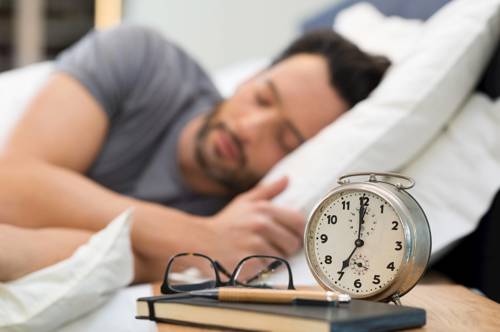Is The Digital Age Affecting Your Sleep?
Natalie Hendrix, Marketing Coordinator ABITEC Some generations have never not known a digital life. Although there are many advantages to the day and age of technology, there could be some potentially harming factors.
Studies have shown that the average American looks at their phone at least 46 times a day and spends over 11 hours a day on their technological gadgets (National Sleep Foundation). It’s no secret that today we are living in the Digital Generation. The digital generation is the generation of people that have grown up with easy access to digital information and communication technologies. Even if we did not grow up with it we are certainly most of us accustomed to it in the present day.
Most of us are constantly glued to our technologies – whether that be smartphones, tablets, laptops, or other gadgets. If we don’t know the answer to a problem, we google it. If we want to check in on an old friend, we text them, or we hop on their social media page. If we want to remember to do something, we ask “siri” set a reminder. The internet has been publicly available for over 25 years and we all remember the famous launch of AOL messenger back in 1997 which really initiated two way communication in the digital space. Some generations have never not known a digital life. And although there are many advantages to the day and age of technology, there could be potentially harming factors, including disrupting your sleep cycle - both falling asleep quickly and sleeping well throughout the night (webmd).
At ABITEC we are always working to analyze the science behind the human body and brain to better understand how our ingredients can help manufacturers foster positive change and help people live longer healthier lives through their products. The brain and cognition is such an important area of study for us as it controls all we do! Our bodies operate on a circadian rhythm. Our circadian rhythm is a 24 hour cycle that determines when we feel tired or awake. It is affected by environmental cues, mainly the power of the rising and setting of the sun. There are also external factors that can affect our rhythms, one of which being technology.

Some have noted that cognitive simulation is the reason technology effects our sleep and there are three reasons for this.
1. Your brain’s reaction
Your brain revs up when you look at a digital screen and when this happens, it’s electrical activity increase and neurons start to race – which is exactly what you don’t want to happen before going to sleep
2. Your body’s reaction
How your body reacts to what you are digesting on your screen before bed affects you more than you think. The physical act of responding to a video game or email makes your body tense and go into “fight or flight” mode even if you aren’t aware you are doing so. As a result of this, a stress hormone named Cortisol is released making it harder to fall asleep.
3. The light from the devices
Different types of light affect our circadian rhythm that our body operates on. The blue light from your technology devices is not bad during the day, but exposure at night is shown to have negative effects on our health. The blue light passes through the retina into a part of the hypothalamus, which is an area of the brain that controls several sleep activities. This delays the release of the sleep-inducing hormone, Melatonin.
Remember that 11 hour stat we talked about in the beginning of the post? I think it may be safe to say we are all losing a little bit of sleep due to overstimulating our brain! At ABITEC’s we study and work to develop nutritional ingredients which aid in focus, brain energy, and cognitive enhancement, but controlling behaviors of human beings and the time they spend on electronic devices, not exactly in our wheelhouse. I’m not here to tell you to shut down your digital world, trust me, but perhaps we could all take a little breather especially close to bedtime!
Some things to keep in mind, staying up later on a consistent basis can readjust your internal clock and delay your sleep schedule back. To ensure your best sleep possible, experts, i.e. (not ABITEC) recommend…
- Avoid looking at screens 2-3 hours before going to bed
- Read printed books rather than e-readers, tablets, or computers
- Keep screens out of the bedroom
- If you must use a screen in the bedroom, dim the brightness on your screen or wear blue-blocking glasses
With some planning and becoming informed, we can make sure our digital age doesn’t stifle our ability to get enough high-quality sleep, and keeps our brains functioning at the highest levels possible!
learn more about ABITEC’s ingredients for Cognition
References:
https://www.igi-global.com/dictionary/digital-generation/7631
https://www.webmd.com/sleep-disorders/features/power-down-better-sleep#1

